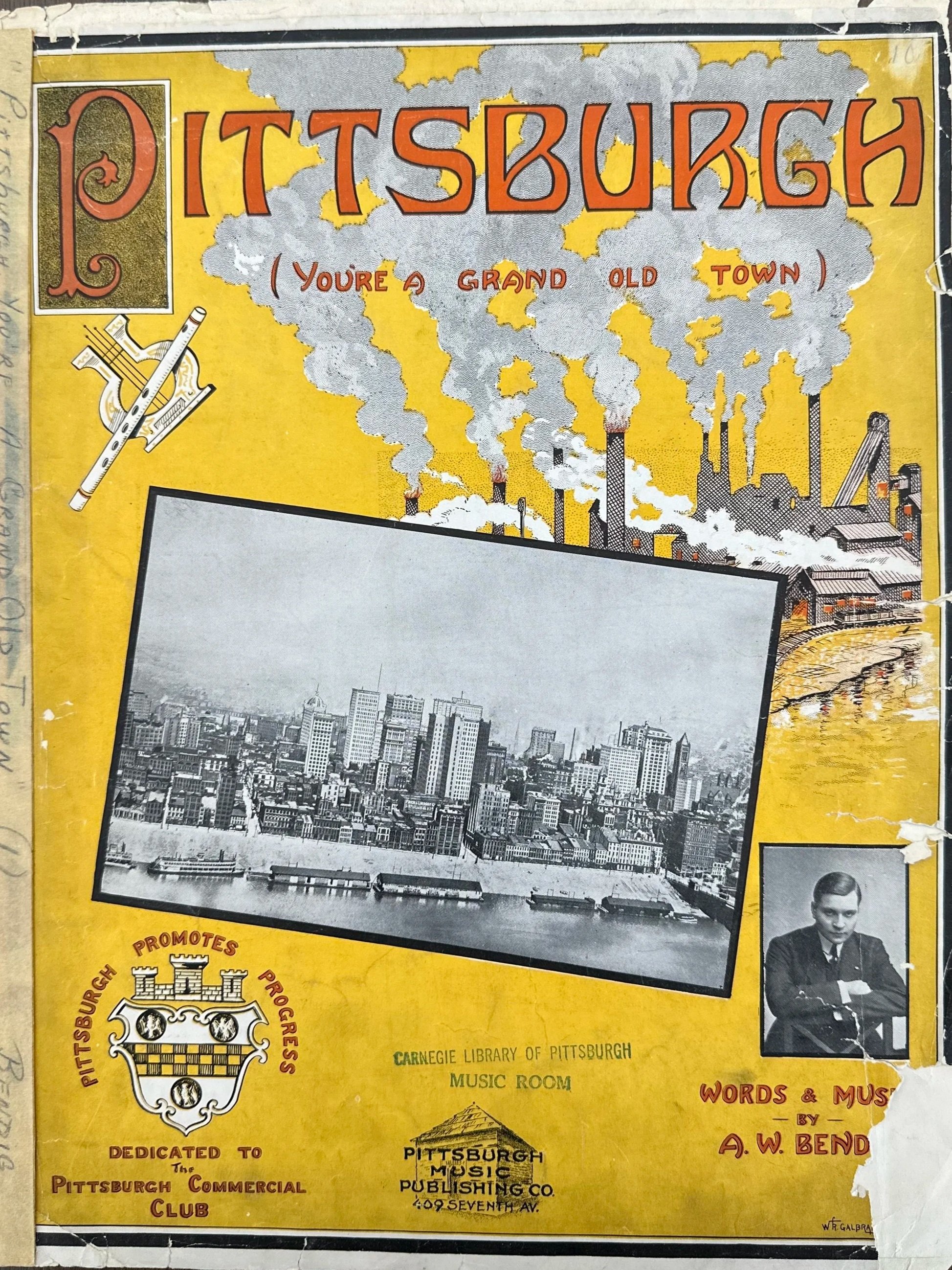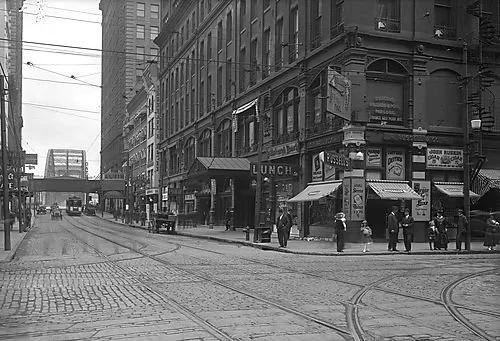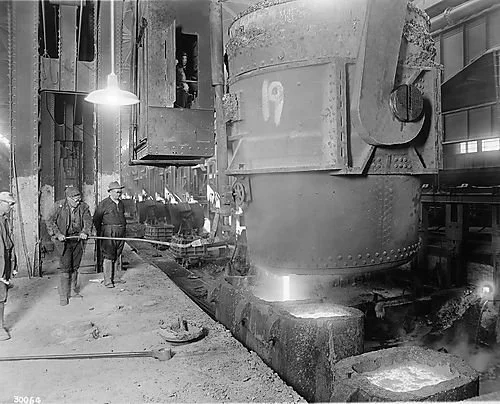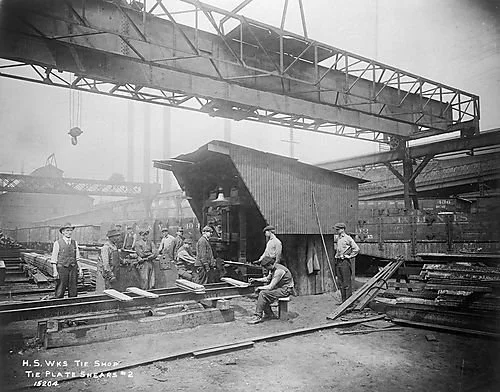Parlor Songs of Pittsburgh: "Pittsburgh, You're a Grand Old Town"
Immediately, this song jumped out at me from behind the glass of Carnegie Library’s exhibit of its “Pittsburgh Music Collection.” The cover and iconography in itself was a story waiting to be unearthed. I am still unearthing it to the fullest extent. However, I will share what I know now, plus my first ever public performance of the piece. Let’s take a listen first.
The cover of this sheet music is a collage of many historical components. Let’s begin in the lower right hand corner. Pictured is a rather dapper gentleman by the name of Albert W. Bendig. The words and music of this tune are written by him. Bendig was certainly a man about town—not über wealthy, but squarely middle class. In 1915 (the time of publication), it was an investment to have your photograph taken, but not an “out of reach one” for a man of middle class means.
Bendig graced the “society” pages of The Pittsburgh Post and The Pittsburgh Press. The Society portions of Pittsburgh newspapers in the nineteen-”teens” were reserved for professional organizations, clubs, charities, and citywide events. They did not follow the petty gossip column format of Gilded Age New York society pages. As club and charity events are covered, Bendig is often noted to have composed a song '‘specially for the occasion.” It is clear to see, and in this case prominently displayed on the cover, that many of these songs were commissioned by clubs he was affiliated with (in this case the Pittsburgh Commercial Club).
The Alvin Theatre is pictured near the corner of Penn Avenue and Federal street in Pittsburgh’s Northside. The Red Goose Club frequently used this theatre as a venue.
I have found mentions of Bendig in affiliation with Pittsburgh Commercial Club, The Moose Lodge, and the Young Men’s Business Club. One may wonder why he was such a “man about town.” Earning the commission to compose songs may have been reason enough. However, composition seemed to be more of a “passion project” or “side hustle” for Bendig. As his main endeavor, he was co-owner of production company, Bendig and Robson. Bendig and his business partner, Robson, were producers of comedic musical reviews, and for a time operated The Red Goose Club. They specialized in comedic musical revues, modeled after the elaborate and dazzling productions gracing the stages in New York City.
While most of Bendig’s compositions were meant for clubs and events, “Pittsburgh, You’re a Grand Old Town,” was published for widespread distribution and frequently on the programs of local concert offerings. I have yet to “unearth” information of Pittsburgh Music Publishing Co. However, I do believe I’ll have leads to share here soon. In the meantime, let’s appreciate the content of this tune…the text presents Pittsburgh as a city with rich history, yet burgeoning with progress precisely because of the laborers. Bendig’s lyrics absolutely adulate the working man in both verses. These lyrics are words of great affection:
The products of its many mills go out to all the Earth
Its legions of hard-working men are giving it new birth
With arms of steel and hearts of iron
They’re ready to acclaim…
Pittsburgh, your eminence and fame
But Pittsburgh men are in the fight
And working overtime
To make their city clean and bright,
A living place sublime
Let’s tender all the credit
And the honor that is due
Pittsburgh our hats are off to you
So here's to the old historic city
Here’s to its men and its mills
We’ll sing your name proclaim your fame
Till its heart with raptures thrills
Your sons will promote in accents loyal
Your progress and renown
Pittsburgh, you’re a grand old town….
Not only is the working man praised for his labors and contribution, but also his character. Bendig poetically remarks on their “arms of steel and hearts of iron.” The characterization is one of mental and physical toughness, which seems to be a point of great pride for the region’s identity.
The text isn’t the only indication of celebration. The jaunty rhythm skips along in dotted figures with several swells that intensify the excitement of the piece. My favorite portion of the piece breaks the third wall with such a swell (rhythmically and melodically) on the text, “But/And listen friend…” Kitschy as it may be, you can’t help but feel the zeal of the song.
Not only does Bendig offer one MASSIVE statement about Pittsburgh’s regional identity, but he also offers little details about the region’s identity that would have been edifying to the ear of the Pittsburgher. These little details feel like Easter Eggs to my ear. My ear is the ear of a fourth generation Pittsburgher. For me, our regional identity and local culture has pardoxically been “watered down” in some ways, yet deepened in richness in others.
When I hear Bendig’s lyrics, “your sons will promote in accents loyal,” I immediately hear my father’s thick Pittsburghese accent in my mind, and I think, “wait…did Pittsburghers have a dialect all the way back in 1915?!” I had to do some digging here. Turns out, yes. Upon inspection of some more newspaper archives, I found mentions of “Pittsburghese” as early as 1908. That’s edifying for the contemporary fourth-generation Pittsburgher that has traveled the country and been told on more than one occasion, “you have an accent.”
The majority of the economy in Pittsburgh is now service-oriented, and steel has been replaced with medicine in large part. However, our industrial roots remain proud. So I sing this song, well…proud.




